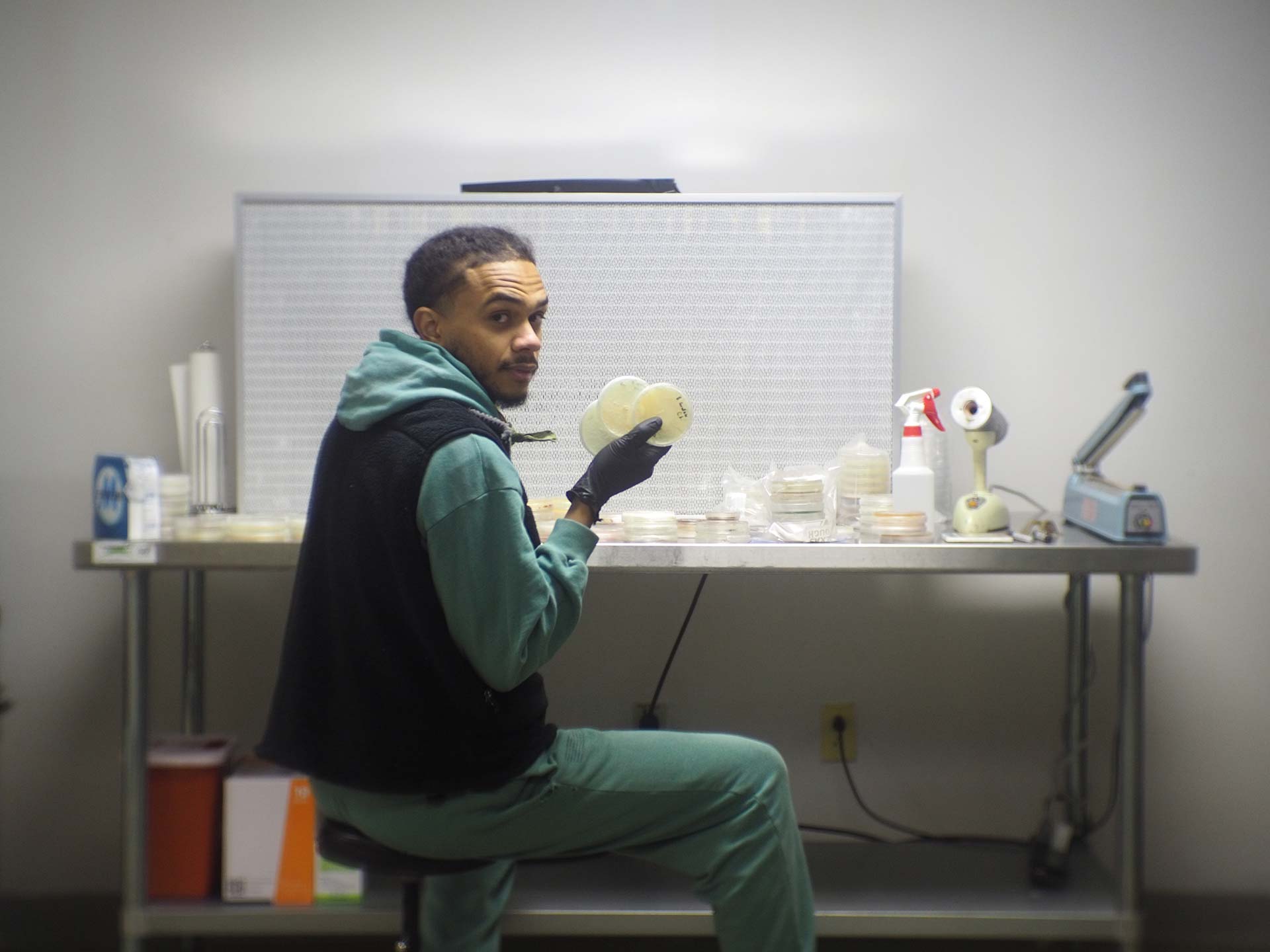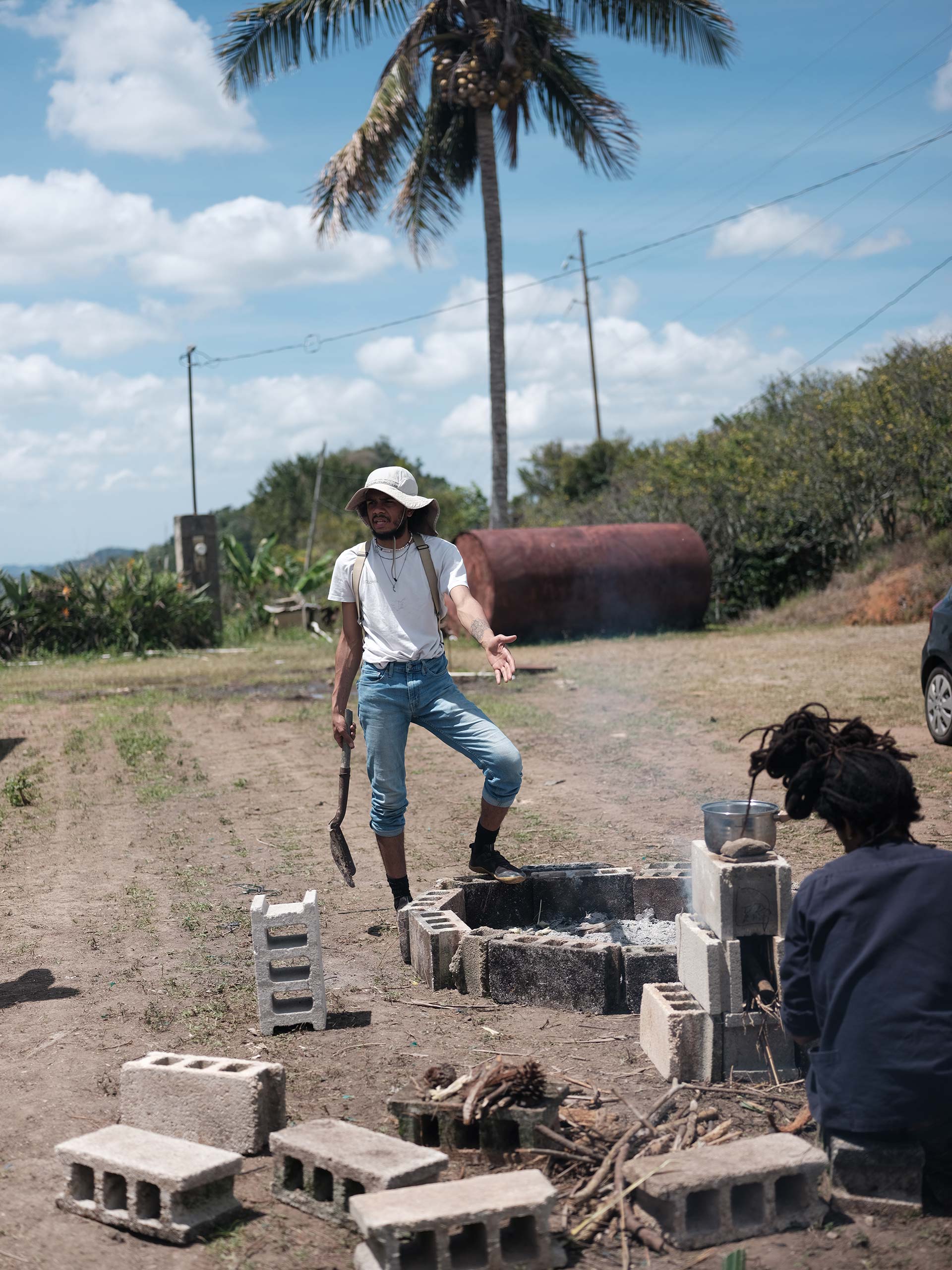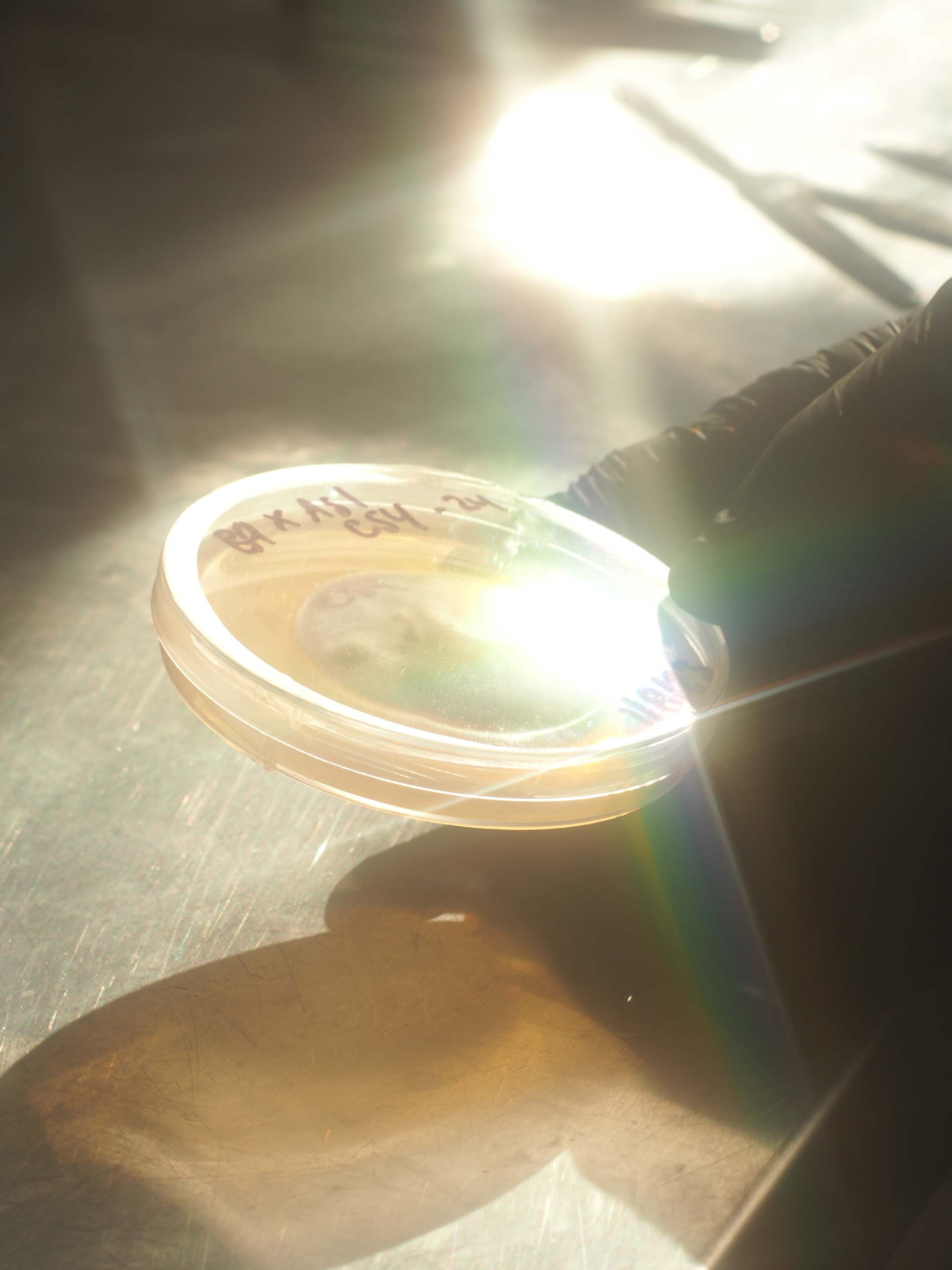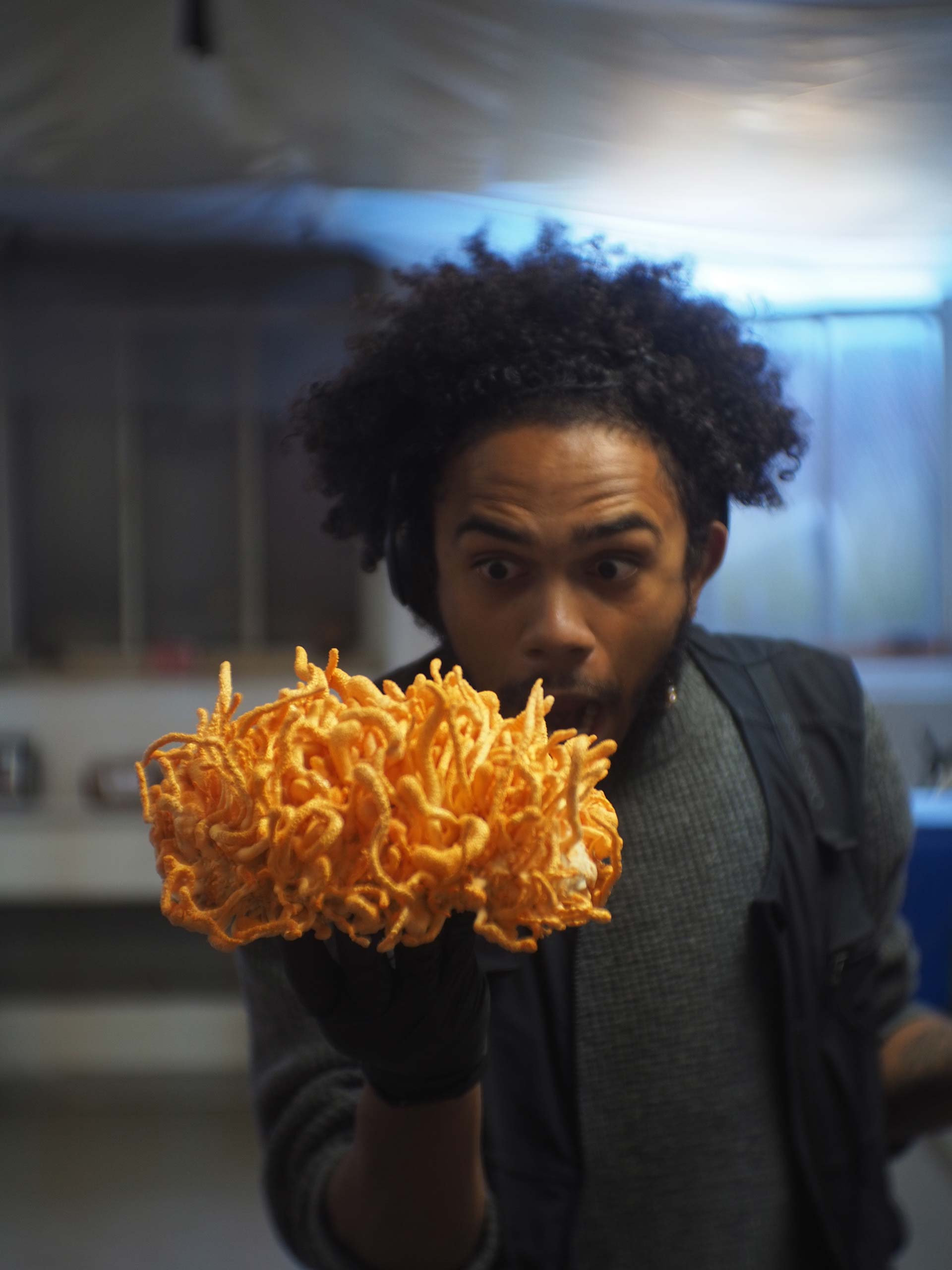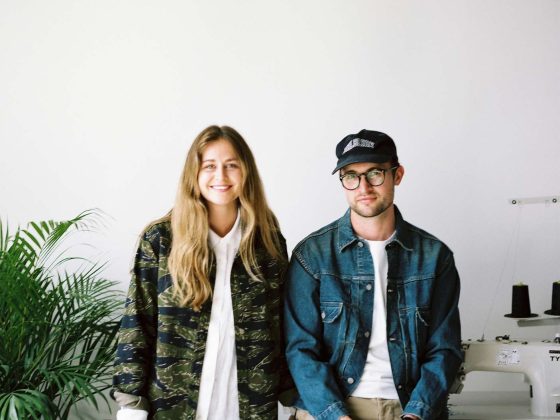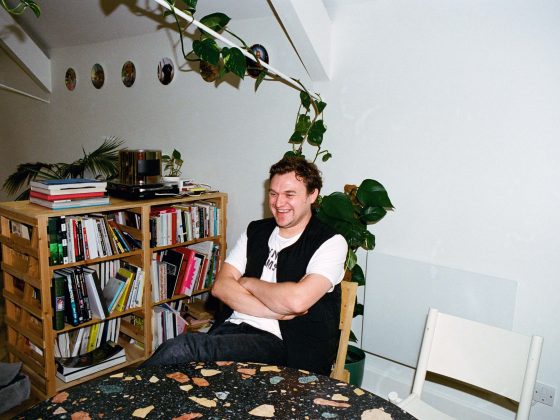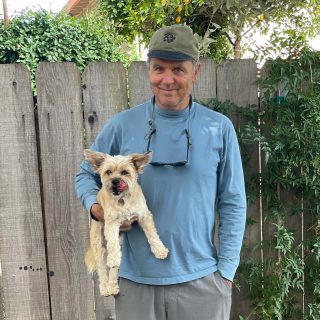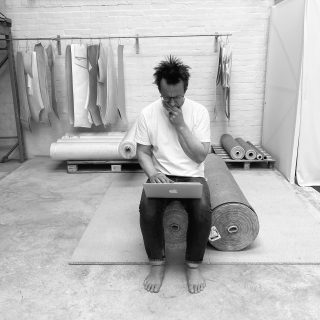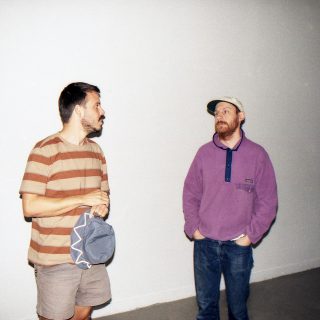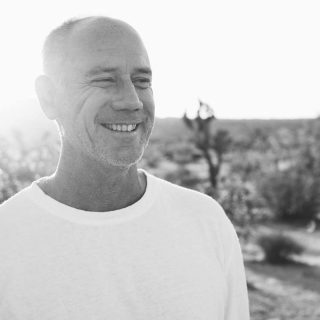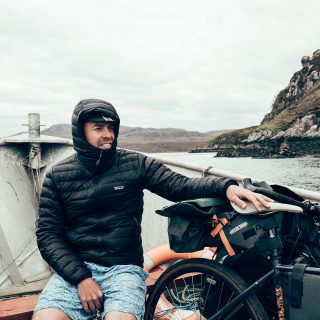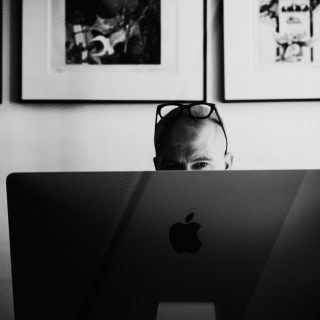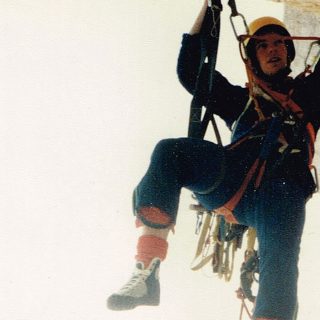An Interview with William Padilla-Brown, Master Mycologist
Putting the culture into permaculture
Not many have done as much for the modern mycology movement as William Padilla-Brown. In 2016 he was the first to publish an English guide to cultivating cordyceps (the aptly titled Cordyceps Cultivation Handbook), sharing his knowledge of growing this seriously functional fungi with the wider world.
Since then he’s been dedicated to building culture around permaculture—and with his company MycoSymbiotics he organises sell-out mycology festivals, teaches courses in foraging and runs masterclasses in urban farming.
We called up his farm in Pennsylvania to talk about early epiphanies, his thoughts on the future and pretty much everything in between…
Going back to the beginning of all this mushroom business, I read somewhere that you had an epiphany about the world when you were a teenager. What happened?
I was using cannabis and getting very introspective and meditating a lot—trying to find a deeper meaning in life, but I wasn’t able to find the understanding I was seeking. But when I tried mushrooms, it was what I was looking for—it was a very spiritual experience and I got a lot of messages and information. One very potent message was that it was important to understand the source of what I was consuming. That was my big epiphany.
What do you mean by that? Trying to get to the bottom of where this stuff we’re fed comes from?
Yeah—from what I was eating to what I was watching on television to what I was looking at on the internet. I wanted to understand the source—who is the author of the book I’m reading? What is the production company of this television show I’m watching? What are their desires or goals? Whose hands did this food touch? What clothes am I wearing? Was there slave labor involved? That’s what I wanted to know. Now with the food I eat or the content I consume, I’ve got a better understanding of where it comes from.
It’s hard to break past that sometimes—to get beyond the facade and find reality.
When I was growing up I just accepted everything at face value. If someone said, “This is great, this is healthy.” I’d think, “Oh yeah, of course—nobody would do anything bad.” My mom did a lot of foreign trade work for the department of agriculture, so I got to see a lot of these large companies and their interactions globally—so when I got older it was clear for me that there are just a few companies who have a monopoly on the world’s resources and a few families that are controlling certain trade routes. I saw it first hand.
So I wanted to make sure that if I was going to be alive, I wasn’t going to be contributing to the aspects of reality that I didn’t really value. I realised that if I kept buying things from these big companies, I was giving money to the entities that I knew were destroying the reality. Why am I going to brush my teeth with their toothpaste? Am I helping a community that I value, or a rich person get to go off on a yacht?
So I thought that I had to do something different. There’s an idea that a lot of people have, and I had when I was young—that idea of ‘I’m just a drop in the ocean’.
That ‘what can I do?’ mindset?
Yeah—but you can do a lot, and you really do matter.
Subscribe to our newsletter
So many people admit defeat. How do you avoid falling into thinking that?
You’re alive right now, and you have a different idea about the world than all of the forefathers that came before you who decided they could kill, rape, pillage and burn the world—and you don’t want to do that. A lot of people now don’t want that—they’d rather have peace and love. So it’s our decision to say that that’s the reality and the world that we want to live in. There’s going to be a point where we’re the older ones—we’re inheriting it right now, so it’s going to be our resources or economies to manage—and if we don’t pay attention to it, it’ll go to the highest bidder who will probably be another trust fund vulture capitalist. It’s up to us to say, “No, I want to live a different way—and I want to build wealth and value around that.” And when I say wealth or value, I’m not just talking about money—I’m talking about assets.
“I dropped out of high school, was on minimum wage serving tables and I had a son—but I could grow mushrooms on coffee grounds and wood-chips I could get for free.”
Just like how the richest people in the world have oil drills and trucks and ships, as a community we need to gain assets to create ecologically regenerative, de-centralised micro-industries that can provide you and your community with the things you’re relying on big companies for. You can have a small company that’s making your environment a better place, and your economy a better economy and you’re not supporting a company that’s shooting rockets off into outer space.
It seems like this de-centralisation thing is the key at the moment.
Yeah—reconnect, regenerate and rebel from the culture of hate—decentralise.
So going back to your realisation—what came next? Where do the mushrooms come in?
In my permaculture processes I was collecting rainwater, I was growing vegetables, I was growing fruit, I was composting, I was growing mushrooms, I was growing algae, I was doing 3D printing, I was making biofuel and I was going foraging, so I started putting all that on YouTube. I had all these different things going on, and out of everything, the myco-symbiote videos got all the views. So I started putting more energy into the mushroom end of things—not just because I could clearly see that mushrooms were trending, but because I saw so much potential for what I could do with mushrooms.
I dropped out of high school, was on minimum wage serving tables, and I had a son—but I could grow mushrooms on coffee grounds and wood-chips I could get for free. Everything else had higher overheads, but I could get everything I needed to grow mushrooms for free. It was the best, easiest thing for me to get involved with. From there I started figuring out low-tech ways to work with mushrooms, and the rest is history.
It feels like even in the last five years people have learned so much about mushrooms. What are your thoughts on them now?
Mushrooms are food, medicine and materials. If we can learn to remove our hubris from our situation, mushrooms and fungi are some of our greatest teachers. I think that’s what the future is—individuals will be able to produce their own food. The pharmaceutical industry is failing us and getting medical care is expensive for a lot of people in the US. Because of big pharma I’m not allowed to say certain things about mushrooms—we have to call them functional mushrooms, but in other countries, these functional mushrooms are used for other functions.
Food, medicine, fibre… people are going to be able to produce all that themselves with mushrooms. And they can also reclaim waste and create more value out of that waste. From coffee grounds or straw or wood chips, you can grow mushrooms then have incredible soil and grow more food from that. It’s a really great way to create more value for yourself through having good soil and water. If you don’t have anything else other than a little bit of land or a backyard—having a compost pile in your backyard and being able to produce healthy soil in your backyard is worth so much money. You know how much organic food costs? Well, you could be producing that in your backyard. You can be making thousands of dollars worth of fresh organic produce in your backyard for free. That’s worth so much—I can’t stress that enough.
But that’s almost a controversial opinion. It sometimes feels like we’re pushed away from doing these normal human things like growing food or swimming in a lake.
I didn’t go out into nature until I was 16 or 17. I lived in a city so long I didn’t realise the basic fundamentals of nature—I didn’t realise that leaves and sticks turned into dirt in the ground. So much of the population has lived in cities their whole lives, and has never gone outside. I take wild mushrooms to the market and people will say, “Did an animal pee on that? Is that safe? Is it clean?” Do they know that all food comes from outside? Or that there’s literally blood, sweat and tears on your berries that come from Mexico? They don’t because it’s all highly advertised and beautiful.
It feels like a lot of people have had a similar realisation to you in the last five years—and are now growing their own food or foraging for mushrooms. Why do you think that is?
We live in a moment in time where in a lot of developed countries you have to have a license to go fish, or in some places a license to go foraging—we’ve reached a point where interacting with nature is regulated. So I think where this comes in is in the fact that the economic disparity is so far that a lot of people really can’t afford to eat or have medicinal things in their life without this.
People think that I did this as a good business, but I was 20 years old, with a son, trying to pay rent in a place where minimum wage was $7.25 an hour. I grew food and went foraging because I couldn’t afford to eat good food. I could only afford the processed food, which was making me sick, and I didn’t want to do that to my son. That’s why—there are so many people who don’t have a choice right now. And then there’s the people who are doing it because it’s trendy and cool—and that’s cool too.
How does this modern interest in mushrooms go beyond a trend? How do we break past fungi being a cool thing to have on a t-shirt, to them becoming instilled into some actual systems?
Culture. We’re over here making new systems of sustainability and regeneration, and we’re building culture around it. We do a festival—three days where people can interact with a space that we create, in classes that we create, learning how to do different businesses, sell their mushrooms, make new products… we’re about to buy some land out here and create a campus and start hosting retreats. That’s the next move—developing culture that people can interact with. People are thirsty for it—they just need a format or a template. “How do I cook? How do I eat? How do I dress? What do I do that’s different?”
“We’re over here making new systems of sustainability and regeneration, and we’re building culture around it.”
Really the world is doing a lot of the work itself. A lot of people say, “What’s next?” but I just got back from a 12,000 person psychedelics conference in Denver, and the fact is—there’s a lot of people tripping right now. One of the most common effects of people taking psychedelic substances is increased nature relatedness, so whether or not I’m out here saying this or doing whatever, a bunch of people are about to become reconnected with nature. And as I travel around the country I meet amazing leaders in every city or region who are holding the torch and creating new realities which are more cohesive with clean water, clean soil and having more space and time with the people we love. So I have faith, because I see it everywhere I go.
I see a lot of people crying and screaming about all the bad things going on—and reasonably so—but I need people to know that the better world that we know is possible is in the works right now, and a bunch of really reliable and responsible people are building it.
And what does it look like? Where will we be in 20 years?
20 years might be really good to actually say out loud. I don’t think people have a radical enough vision for what it could be. So many people think it’ll be bad, but I think more people need to believe what could be possible. In 20 years I’ll be 49 years old, and my son will be 29 years old, and by that time we’ll be in a gasless society—there’ll be more public transportation running on sustainable energy, there’ll be more wild land secured as wild land, not for people to develop on, there will be individuals that value each others culture, living in sustainable systems on land they’ve acquired and developed into food forests. I think there’s going to be a lot of opportunity for people who want to be living in ecologically regenerative systems—full on food forests with homes that aren’t detrimental to the environment.
I think we’ll be working to convert cities into ecological paradises. I could also envision a lot of businesses mining landfills for resources to utilities, I also imagine a global marketplace with goods that are moving around on magnetic tracks—so things can travel long distances with a smaller carbon footprint. I could also imagine with the amount of sensors and drones they will have mapped out the entire earth for microclimates—assessing the environment for the impact of introducing new organisms into it, so people can start producing high value crops wherever they’re at.
You’re positive then.
Yeah, I think the world is going to become hyper-localised, and people will be able to maintain their resources. I think people will be able to create incredible regional value by understanding the terroir of where they’re from, and understanding what their area is capable of producing that other areas can’t produce, and create a culture around that. And I think that culture is going to be exported instead of the actual goods. Every place will be known for its thing.
You’ve got a very open attitude with a lot of this stuff. How important is that open source mentality with these ideas?
The open source mentality is super strong, and it helps you to make a lot of connections—but on the other hand there are rich people out there using things I developed and making a lot of money on it, because they had the assets to amplify the work. So I’d let any young people coming up know that they should patent their work. You can still make it available to people, but you’ll get a check whenever some rich person takes your information.
I suppose that’s the thing—how do you stop these ideas getting swallowed up by the machine you’re trying to fight against?
Find good community, work with your family and take some time to learn. I really hope that more young people listen to my work—people who are 14 or 15 years old. It was around that age I started teaching myself how to do things on the internet—from recording music to Photoshop. In your young teenage years, if you’re lucky enough that you don’t have to work, you have a window of time to free yourself before you’re a legal adult.
From 14 to 18 you’ve got four years to free yourself—so if you want to get into mushrooms or foraging or content production or whatever you want to get into, take some time to make a business plan and read up on intellectual property. That means that once you get out into the world, you’ve got a plan to bring income back into your life and for it to be sustainable. That’s what I would have told myself when I was young.
I suppose it’s all possible now. Whatever you’re into, you can find information about it now.
I think the internet is literally our saving grace as humanity. It’s the one factor that will literally save us. I’ve become as educated as I am because of the internet. People just messing around on TikTok or Facebook don’t realise the potential they’ve got at their fingerprints. I have a lot of faith in the blockchain and people being able to create de-centralised networks for sharing information.
Like with mushrooms and the mycelium network, is connection the key to all?
As above, so below. The mycelium is a representation of what is to come and what we’re to create. I think it’s helping us to branch our nervous system out further so we can have more complex interactions. I want to get back in touch with everything, but we’re out here dividing ourselves. If you take an ant out of its colony, it doesn’t know what to do—it doesn’t collect food, it doesn’t do anything to sustain its life. But if you put some ants together they start to create complex super-structures and social systems and do incredible things. Right now we’re running around like individual ants.
Some families can’t even agree with each other—they’ll say, “You’re an adult, do your own thing, I’m not going to support you anymore.” Go to Central America or the Caribbean and they’ll have their brother, sister, aunty and cousins all in the same bedroom, while here in the US people have spare bedrooms. In different parts of the world, they take care of each other, but here we live with this nuclear mindset of ‘everyman for himself’. We haven’t realised that if we worked together we could create pyramids. Scientists are looking at the pyramids now thinking, “How did we do this?” not realising that it’s because we’re not working with each other anymore—we let ourselves get this divided. But I think we’re the generation that’s going to come together.
How do we get past this division thing?
Open up your heart with people, dance with people, eat good food, travel… I think travel is so cost prohibitive and there are issues with borders, but I think if we can make traveling more accessible for people, it’ll open the doors for people to understand that people we think are ‘aliens’ are just like us. That was one of the biggest things that helped me open up—just realising how similar we are.
Definitely. I think it’s easy to forget that—I’ll do it myself, when I see someone I maybe know from years ago saying something odd on the internet or doing something maybe I wouldn’t do. But when I actually see them and spend time with them, I remember they’re actually pretty cool.
Yeah, don’t live through the internet. You can have so many opinions on reality, without even interacting with reality. I meet a lot of people who say, “I thought you were rude until I met you.” They literally looked at pictures of me on the internet and had this opinion of me. If you’re judging people based on what’s on the internet, you’re only getting a censored version of them. So yeah, it’s all about taking time to talk to people who are different to you. When you’re forcing your ideas onto people, you’re never going to change their mind.
Nothing gets anywhere.
I’ve met people with different opinions to me, but I’ve been able to get them on the same playing field and get them to hear me, because I’m not screaming at them. We’re in a crazy moment—people think the world is dying, but it’s not, we’re destroying ourselves and the ideologies we’ve created. A good therapist will say, “If you want to get over your problems, you have to accept you have a problem.” And not a lot of people have fully accepted the extent we have damaged ourselves.
I don’t want people to be scared, I want them to accept the problem we’ve created, so we can grieve over it, then we can get over it. This is the world that we live in—so we’ve got to wake up and think about our future—let’s get it. I have a lot of faith. The greater world that our hearts know is possible, is possible—and it becomes more amplified the more people get with the program.
In another interview you talked about what you called ‘unintentional exclusivity’—and about how events or ideas can seem like they’re for everyone, but they’re still kind of closed off.
People need to realise that some things are beyond them, and accept other people into their culture—bring a different artist to the party. When I started going to agricultural events, it’d be like a hoedown. And that’s not me. So you’ve got to go where different people are, invite them in, invite their art in, invite their food in. Maybe then they’ll be inclined to come and listen to what you’re talking about. Bring diverse people in, and pay them like you’d pay experts in your own field.
So many places miss those obvious steps. Changing subject slightly, how have you seen the permaculture community change since you’ve been involved?
It’s grown a lot. There are a lot more people on the ground—wanting to know how to grow or get involved. And there’s a lot more venture capital and a lot more education. There are more different mushrooms growing and more nuanced styles of cultivation.
You’ve worked on so many different aspects of all this, from aglae to cordyceps. What’s exciting to you for now?
I’m about to go and get some land. We’re building out a campus—we’re working with a company who are going to be doing 3D printed residences so students can come and stay on our property, we’re going to be doing food forestry, we’re going to be cultivating micro-rhizome organisms and we’re going to be working on de-extinction technologies so we can work on bringing extinct animals back into the systems. I also want to get some land in Canada so I can be a part of the projects on wooly mammoths.
Woah—that’s quite a project. Last question as you’ve clearly got a lot on—what’s your favourite meal with mushrooms? What are you cooking?
I really like maitake tacos. Super simple—take some maitake, also known as hen of the woods, hit that with some cumin, some paprika, some salt, some pepper, some cilantro and some oil. Hit that up like a street taco—fire.
Find out more about William’s work here. Interview by Sam Waller.
